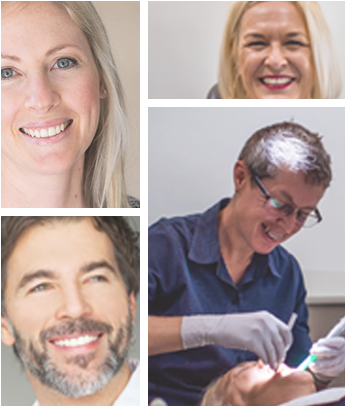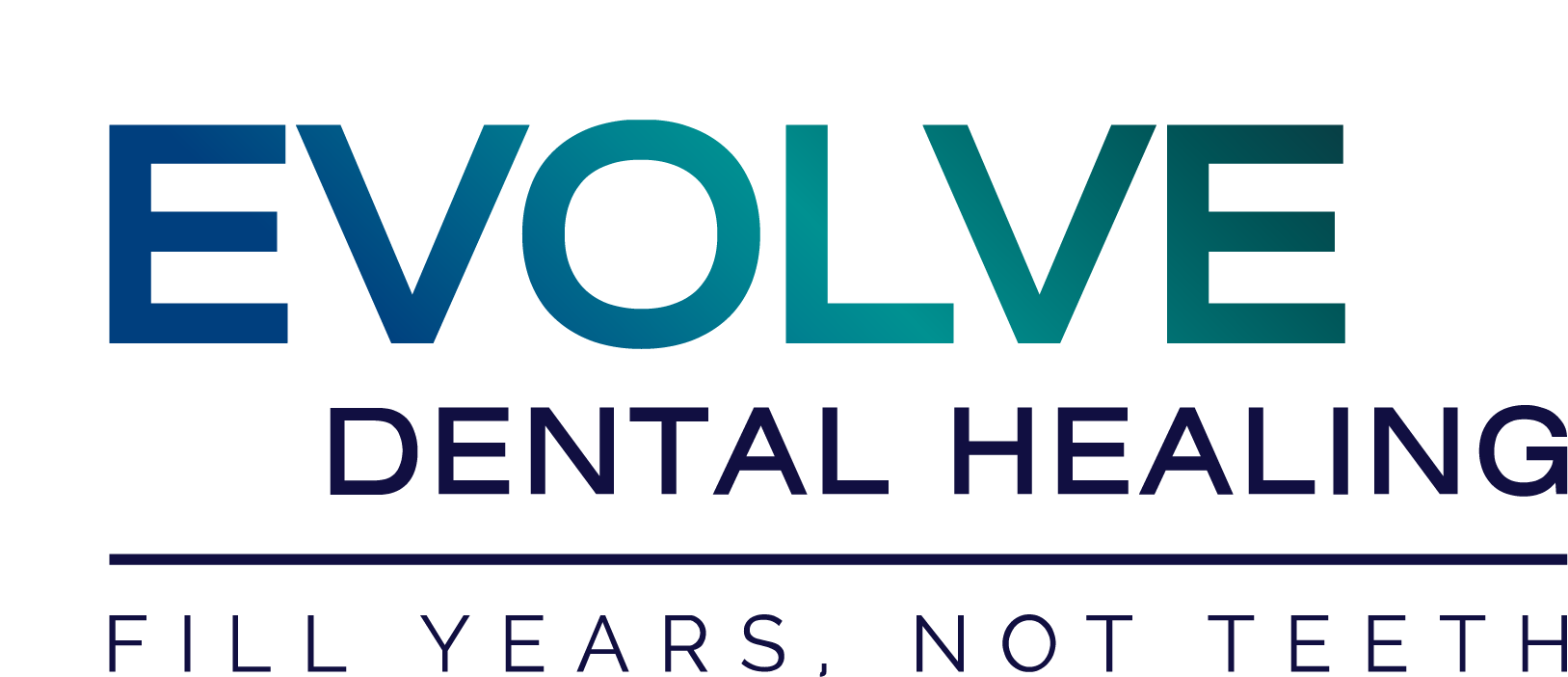Holistic Dentist Brisbane Tips To Improve Your Oral Health

Holistic dentist Dr Rachel of Evolve dental Brisbane shares her tips to improve your oral health and why good oral health is essential if you want to be healthy.
Improving your oral health can do more for you than making your smile white and bright…
“Good oral health is essential as your body cannot be healthy without healthy teeth and gums.” ~ says Brisbane Holistic Dentist
Why You Need Good Oral Health
- A well-balanced oral microbiome (population of mouth bacteria) is important for optimal health. Periodontal (gum) disease and Type 2 diabetes are strongly connected.
- Good oral hygiene has been shown to lower your risk of pneumonia by about 40 percent
- Poor oral health is linked to high blood pressure, cardiovascular disease, arthritis, and even cancer.
- Failing to brush twice a day increases your risk of dementia by 65 percent compared to brushing three times a day
- When bacteria that cause tooth decay and gum disease enter your circulatory system, your liver releases inflammatory C-reactive proteins that cause chronic inflammation; chronic inflammation is a hallmark of most chronic diseases.
Oral Health Beyond The Dentist Visit
- A comprehensive oral health plan includes addressing your diet, reducing your carb intake and, if needed, taking nutritional supplements that support your oral health
- Other components of a comprehensive oral care plan do include brushing daily with daily flossing and use of an anti-inflammatory mouthwash – good oral care cannot be avoided if you want to improve your oral health
The Importance of a Healthy Mouth
It’s unfortunate how many people don’t know or appreciate how important oral health has on their overall health. The fact is, the delicate balance of bacteria in your mouth is as important to your health as your gut microbiome. When certain bacteria become overabundant, various oral problems start to develop. As a Brisbane based holistic dentist I see so many people with inflammation on infection in their mouth which they have no idea is there.
Take periodontal disease, for example, which affects the soft tissues and bone, is initiated by an increase in Porphyromonas gingivalis, which impairs your immune response, while dental caries (decay) had been causally linked to Streptococcus mutans. Your oral health, in turn, impacts the rest of your body and can have a significant impact on your disease risk.
Type 2 diabetes and periodontal disease are strongly connected. Research also shows that failing to brush twice a day increases your risk of dementia by as much as 65 percent, compared to brushing three times a day, and good oral hygiene has been shown to lower your risk of pneumonia by about 40 percent.
Brisbane Holistic Dentist About Your Dental Wellness Program
When bacteria that cause tooth decay and gum disease enter into your circulatory system, your liver releases C-reactive proteins, which have inflammatory effects. Inflammation, in turn, is known to be a disease-causing force leading to most chronic illness. For example, inflamed and diseased gums may raise your risk of a fatal heart attack by up to 10 times.
What’s worse, heart attacks related to gum disease are fatal 9 times out of 10. So, a major part of oral health is attending to your oral microbiome. If you’ve been slack about your oral health, make this the year you really make an effort to address the health of your mouth. Don’t wait for a dental emergency or a health scare – take action now.
Toothpaste and Mouthwash Destroy Your Good Dental Bugs
Your oral microbiome is like your gut microbiome in the sense that it needs to be well-balanced in order to support optimal health. Even otherwise harmless bacteria can have pathogenic effects if the balance gets too disrupted. Taking probiotics will improve the balance of bacteria in your gut, but this does not work for your oral cavity. Instead, the key to improving your oral microbiome is, first and foremost, to stop killing the good bacteria in your mouth.
This means abstaining from harsh alcohol-based mouthwashes and toothpaste containing fluoride and antimicrobial ingredients such as triclosan. Fluoride not only harms your microbiome but also has many other detrimental health effects. In fact, fluoride overexposure from toothpaste, fluoridated water and other sources has led to a virtual epidemic of fluoride damage.
Fluoride is an endocrine disruptor that can affect your bones, brain, thyroid gland, pineal gland and even your blood sugar level. Fluoride has also been linked to brain damage and lowered IQ in children. While your teeth need certain minerals and nutrients, fluoride is not one of them, and even topical application of fluoride has come under question.
Brushing Your Teeth
Daily tooth brushing is the most basic of oral care. The ideal brushing time is two minutes, with light pressure. Brushing your teeth too hard and longer than necessary may cause more harm than good, so there’s no reason to brush harder or longer. Ideally, brush twice or three times a day — in the morning, evening and 30 to 60 minutes after your main meal.
The reason why brushing immediately after eating is not recommended is because doing so may actually weaken rather than strengthen your tooth enamel. Brushing your teeth too soon following eating or drinking, especially acidic foods and drinks such as soda, accelerates erosion of tooth structure.
As for toothpaste, I recommend using non-fluoridated versions. Also check the ingredient list for other harmful ingredients such as triclosan, sodium lauryl sulphate, propylene glycol, diethanolamine, parabens and microbeads.
Flossing – You Can’t Avoid It If You Want A Healthy Mouth
The practice of flossing is frequently overlooked. This is unfortunate, as flossing is perhaps even more important than brushing. It removes bacterial precursors of plaque, which eventually turns into hard tartar that cannot be removed by regular brushing or flossing.
Tartar is what eventually causes the damage that leads to decay and tooth loss. Most people are aware that flossing is a recommended practice for optimal oral health, yet:
- 32 percent of adults over the age of 30 never floss
- 37 percent floss, but not daily
- 30 percent floss on a daily basis
- More women than men never floss
If you’re among those who rarely or never floss, consider adding this practice to your daily routine. One way to improve your odds of making this a daily habit — especially if your excuse is lack of time — is to build up slowly. On the first day, simply floss a single tooth. The next day, do two. On Day Three, floss three teeth, and so on, until you’re in the habit of flossing your entire mouth each day.
How To Floss
- Use a piece of floss that is about 40 to 45 cm long and wrap each end around your index fingers. If you have wider spaces between your teeth, use Super Floss, which is thicker
- Gently slide the floss between your teeth. Avoid snapping the floss down into your gums
- At the gum line, wrap the floss around the side of the tooth in the shape of a “C,” and gently but firmly slide the floss up and down the tooth and side-to-side, making sure you get down into the gum line as well. Make sure you scrub both sides of the adjacent teeth before moving on to the next set
- Repeat on the rest of your teeth, including the back side of your last tooth
If dexterity is an issue, use soft plaque removers or interdental brushes instead of floss. Similar to toothpicks, they allow you to clean between your teeth with one hand.
If brushing, flossing or using a plaque remover causes your gums to bleed, this is a warning sign that bacteria are at work, causing damage. If left to fester, it can easily cause chronic inflammation elsewhere in your body. The answer is to gently floss and brush more often until your gums no longer bleed from brushing or flossing. If bleeding persists longer than a week, see a dentist.
Nutritional Supplements That Support Oral Health
Consider taking nutritional supplements that support gum and oral health, such as:
- Vitamin C, which helps improve and preserve periodontal health by improving your body’s defence mechanisms.
- Coenzyme Q10 (CoQ10). Bleeding gums is often a sign of CoQ10 deficiency. If you’re an adult, the reduced version of CoQ10, called ubiquinol, tends to be more readily absorbed.
- Vitamin K2. The second highest concentration of vitamin K2 in your body is in your salivary glands. When vitamin K is secreted in saliva it reduces bacterial counts involved in tooth decay.
Develop An Oral Health Plan With Your Holistic Dentist Brisbane
Caring for your teeth and gums is an essential part of your overall health and wellness. It’s important to address nutrition, oral care and the products you use. To summarise, here’s a five-step plan that can help you improve your oral health this year:
1. Reduce your net carbohydrate intake to meet your insulin level requirement. Aside from sugar, avoid carbs like beans, legumes and grains such as rice, quinoa and oats, as well as highly processed grain products like bread, pasta, cereal, chips, bagels and fries. These begin digestion in the mouth and impact the health of your teeth the most.
Focus on eating a diet of fresh, whole foods, including grass-fed meats and organic vegetables. This helps to ensure you get plenty of minerals for strong bones and teeth. If needed, consider adding one or more nutritional supplements to support your oral health.
2. Brush twice or three times a day, 30 to 60 minutes after drinking and/or eating.
3. Use non-fluoridated toothpaste, or make your own using natural ingredients such as coconut oil, baking soda and essential oils. There is no compelling reason to expose yourself to dangerous chemicals when other natural alternatives are easily available, highly effective and cost-efficient.
4. Floss daily. Preferably after every meal.
5. Use an alcohol-free essential oil mouthwash once a day, ideally first thing in the morning, to reduce bacterial growth, strengthen your teeth, reduce bad breath and lower your risk of gum disease.
If you have concerns about your dental health, have bleeding gums, bad breath, pain/sensitivity or lose teeth then visit your dentist as soon as possible.
-
Dr. Rachel Hall
Rachel is the founder and principal dentist at Evolve Dental Healing with over 30 years experience, practising holistically since 2001. Not your typical dentist, Rachel is a passionate opinion leader, challenging convention to empower people to make better dental and health choices, helping thousands to have healthy natural smiles. A respected writer and presenter on holistic dentistry, health and wellness it is Rachel’s mission to revolutionise the way people look at their dental health.
Talk to us for more details and information
CONTACT US
67 Kenmore Road
Kenmore Queensland 4069
Phone: 07 3720 1811
Fax: 07 3720 1899
Email: info@evolvedental.com.au
OPENING HOURS
Monday – Friday: 7:30am – 5:30pm
References and Citations Mercury & Amalgam Fillings




